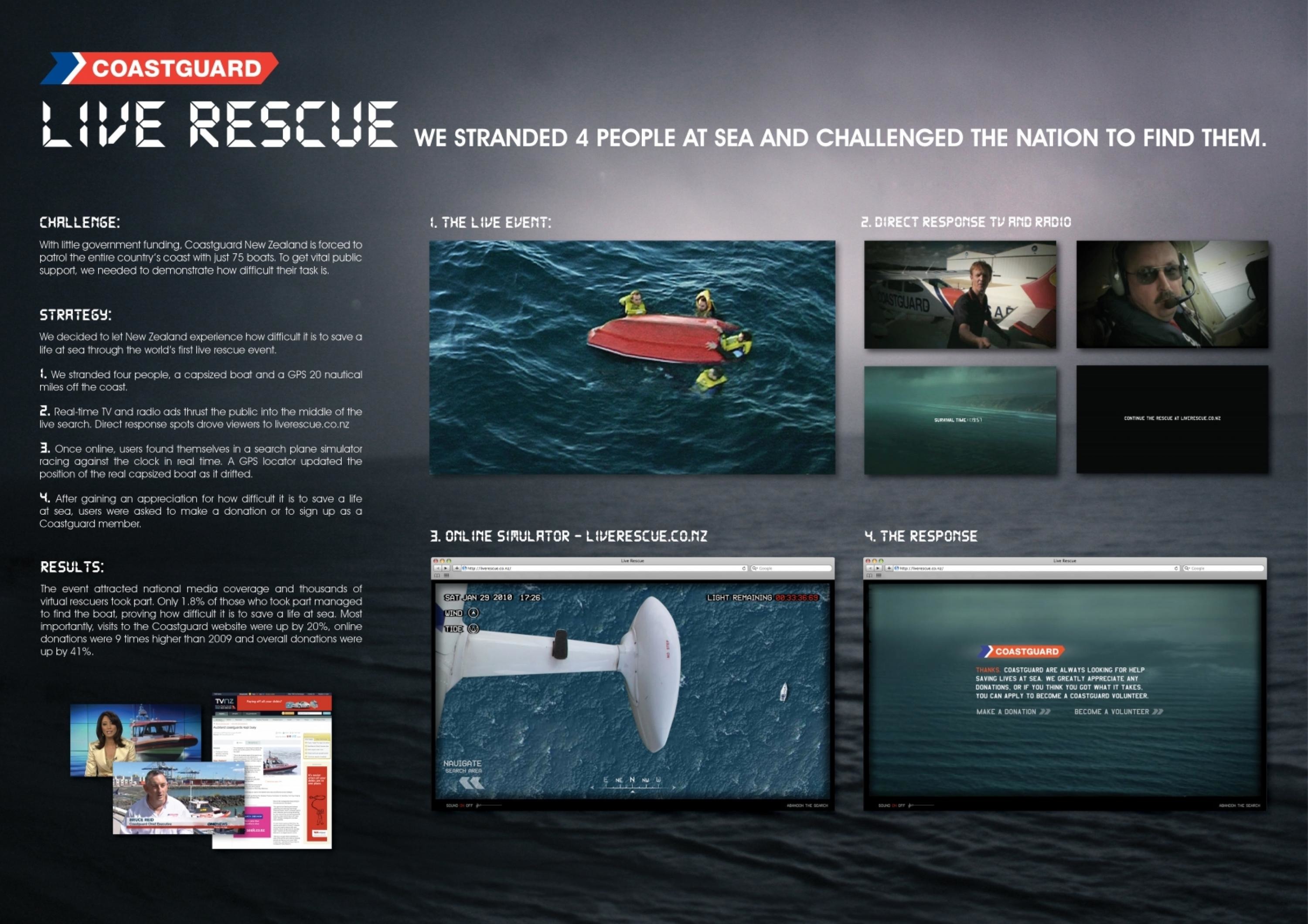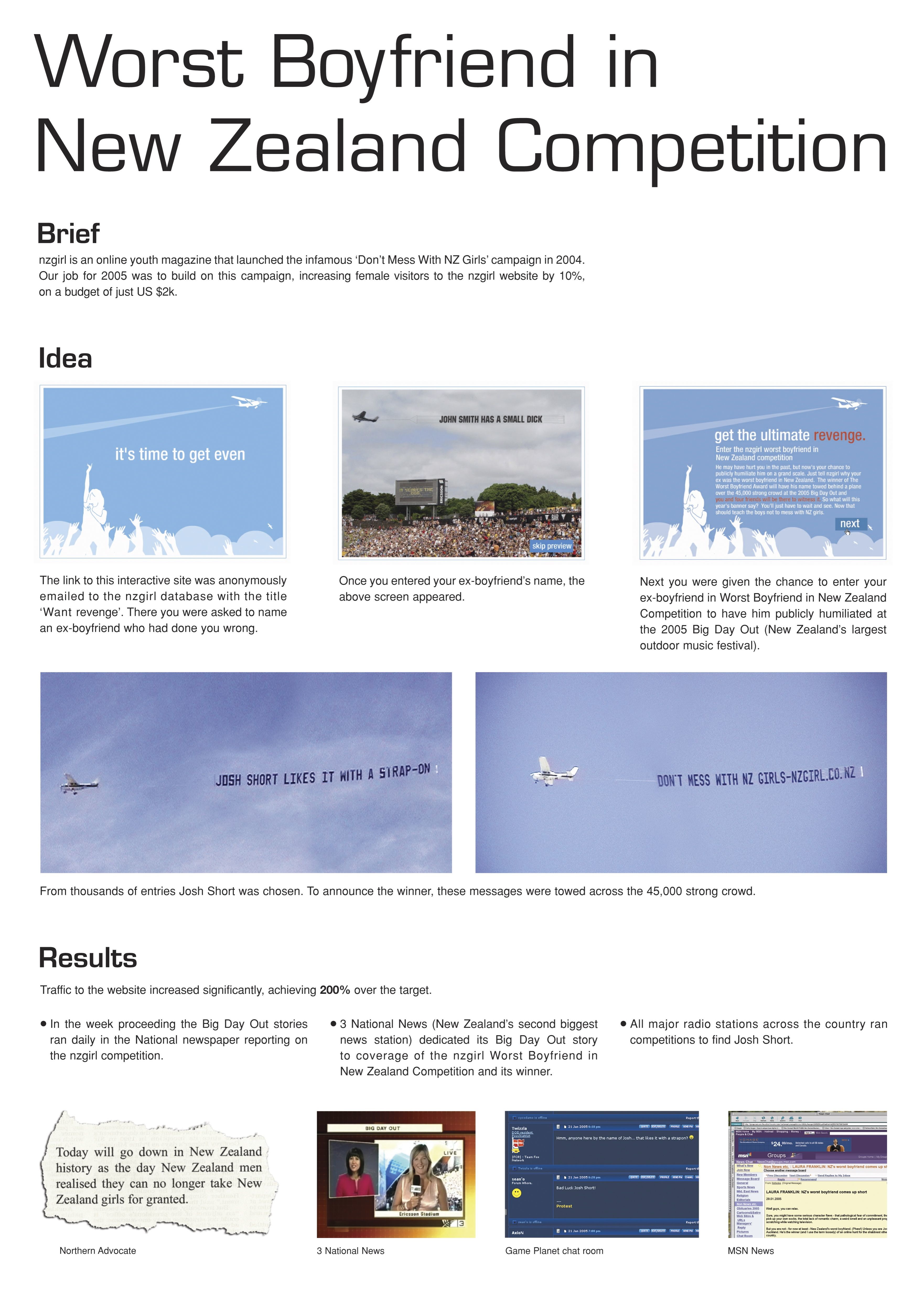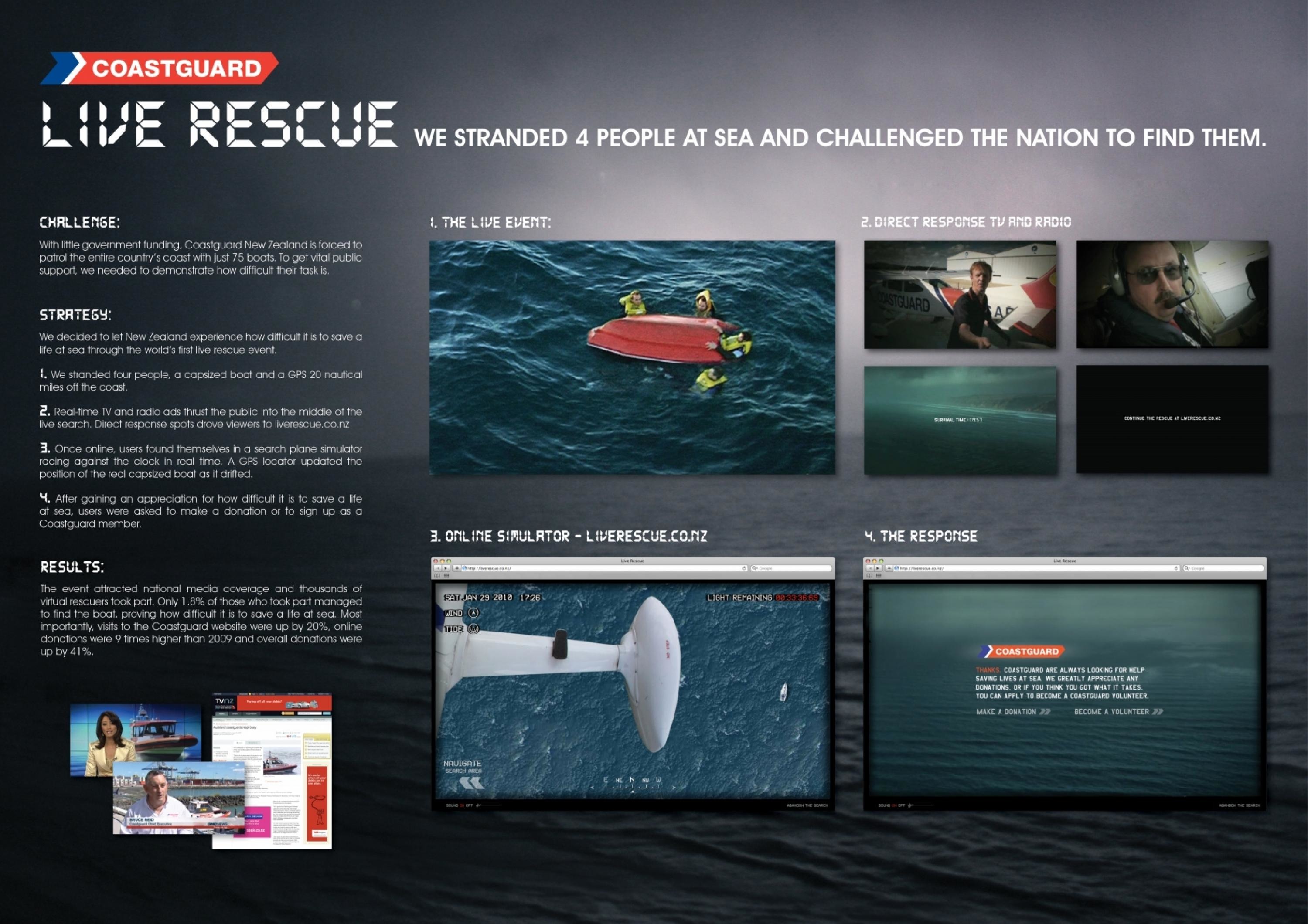Brand Experience and Activation > Culture & Context
CORRECT THE INTERNET
DDB NEW ZEALAND, Auckland / TEAM HEROINE / 2024
Awards:
Overview
Credits
Overview
Why is this work relevant for Brand Experience & Activation?
Many of the world’s biggest sporting records are held by women. But when you ask search engines simple, non-gendered questions to find this information, like ‘who has scored the most goals in international football?’, search engines often overlook the facts and incorrectly favour more popular, trending sportsmen over sportswomen, making the women’s achievements invisible.
The only way to correct search engines is by people sending direct feedback messages reporting problems they find in search results.
So we created a campaign dedicated to reporting direct feedback messages to correct the incorrect searches, on a scale the search engines couldn't ignore.
Please provide any cultural context that would help the Jury understand any cultural, national or regional nuances applicable to this work.
Search algorithms are trained on human behaviour. Algorithms have learned to tell us that Cristiano Ronaldo’s 119 international goals are superior to female footballer Christine Sinclair’s 190 international goals, because that's what they think people want to see.
The way these algorithms work is closely guarded by the search engine companies themselves, who don't want big problems like a bias in their algorithm being public. This along with the sheer size of these companies makes seeing change a very difficult process.
This campaign forced them to take notice by reporting the bias on an unprecedented scale, using their own feedback system, and people power.
The factually incorrect searches we are correcting are why so many of the best sportsmen are household names, while the greatest sportswomen have little name recognition at all, and why little girls who search the internet for women to inspire them often only seen men.
Background
The internet has a bias.
Search algorithms are trained on human behaviour, designed to give us what they think we’re looking for. Now, they’ve learnt our bias towards men.
Asked simple, non-gendered questions, like “who has scored the most goals in international football?”, search engines prioritise the more recognised male athletes, even when facts say it’s a female athlete - making women and their achievements invisible.
So Team Heroine, a women’s sport marketing agency that seeks to connect female athletes with brands to ensure they're better recognized in a world where women’s sport receives just 0.4% of media coverage and 4% of total sponsorship, aimed to correct the internet's bias.
Our objective was to highlight the incorrect searches and get as many people as possible report these inaccuracies to the search engines so they could be corrected, and the achievements of sportswomen would become visible for all to see.
Describe the creative idea
We created an initiative that used the power of the people who use the internet, to right the wrongs of it. Our mission: Correct The Internet and make the achievements of sportswomen visible.
The only way to correct search engines is by people sending direct feedback when they find inaccuracies. So we developed a tool that highlighted the incorrect searches that create the bias, and allowed people to report feedback messages containing the correct information directly to search engines with just a couple of clicks, to elicit a clear response from each search engine - correct this search.
The importance of this issue, and our simplified way of reporting direct feedback on the long list of incorrect searches, saw the world quickly take action. Search engines received these messages on a scale they couldn’t ignore, making them to take action, too.
Describe the strategy
Internally, this problem has been on search engine radars for years, with many teams experimenting solutions.
Monetised opportunities often take priority, so these teams struggle securing resources to implement solutions.
To make them prioritise this problem, we focussed on:
-External pressure (PR/awareness) on marketing/business, targeting the ‘trust’ pillar of brand health tracking which we know is monitored.
-Internal engineering pressure via bug reports from millions of users, to prioritise our corrections.
We conducted an audit of simple, non-gendered searches across Google, Bing, Yahoo & Baidu, collecting search results that used incorrect statistical data to create bias. We quickly discovered 50+ incorrect searches and added them to our tool for people to report.
With 50+ inaccuracies that affected different countries, sports, teams, and athletes, each was an opportunity for users to directly inform each search engine exactly what they needed to change in order to correct the bias in each result.
Describe the execution
To get the attention of the search engines, we needed people power to deliver the feedback highlighting each inaccuracy directly to each search engine.
We launched with a film that showed the reality of what happens when a little girl asks the internet a question and receives an answer that incorrectly puts a sportsman ahead of a sportswoman. This film quickly spread around the world, inspiring people to act.
This led them to the tool we developed to highlight the incorrect searches and allowed people to report them as direct feedback messages with just a couple of clicks. Each message elicited a clear response from the search engines – correct this search.
New incorrect search results were revealed each day across social, digital, and OOH, and shared globally, building a following of athletes, sports teams, advocacy groups, media and the public, and led to more and more reports being made.
List the results
Our campaign reached over 1 billion people globally.
Had 120+ pieces of media coverage, including BBC, NBC, Fox News, Sky Sport & Forbes.
Millions of people reported to search engines through our tool, social channels, and the media.
And we’re now supported by over 50 global brands, including the United Nations.
When we started, the search results never showed sportswomen.
Although people can be served different results based on location, demographic and search history, we are now beginning to see change to many of the searches, correctly recognizing a female.
Now, a problem that has existed within search engines for decades has new momentum and is being solved, with Google deploying new features to highlight women’s sport, offering both male and female results on searches.
And now, Correct The Internet is part of UK/international government enquiries into misinformation, to help change the future of the internet.
Please tell us how the brand purpose inspired the work
This is a bias that affects half the population.
It affects everyone who searches the internet.
It affects the world’s biggest sports, athletes and teams.
And it affects the next generation of little girls looking to find and follow in the footsteps of inspiring sportswomen.
Currently, this bias is making women’s sport invisible - receiving just 0.4% of media coverage and 4% of total sponsorship globally. Many male athletes are household names, while most female athletes have very little name recognition at all - made worse by the fact that many of these sportswomen’s achievements are statistically superior to the men.
Correct the Internet and Team Heroine fight to fix this injustice.
More Entries from Corporate Purpose & Social Responsibility in Brand Experience and Activation
24 items
More Entries from DDB NEW ZEALAND
24 items










